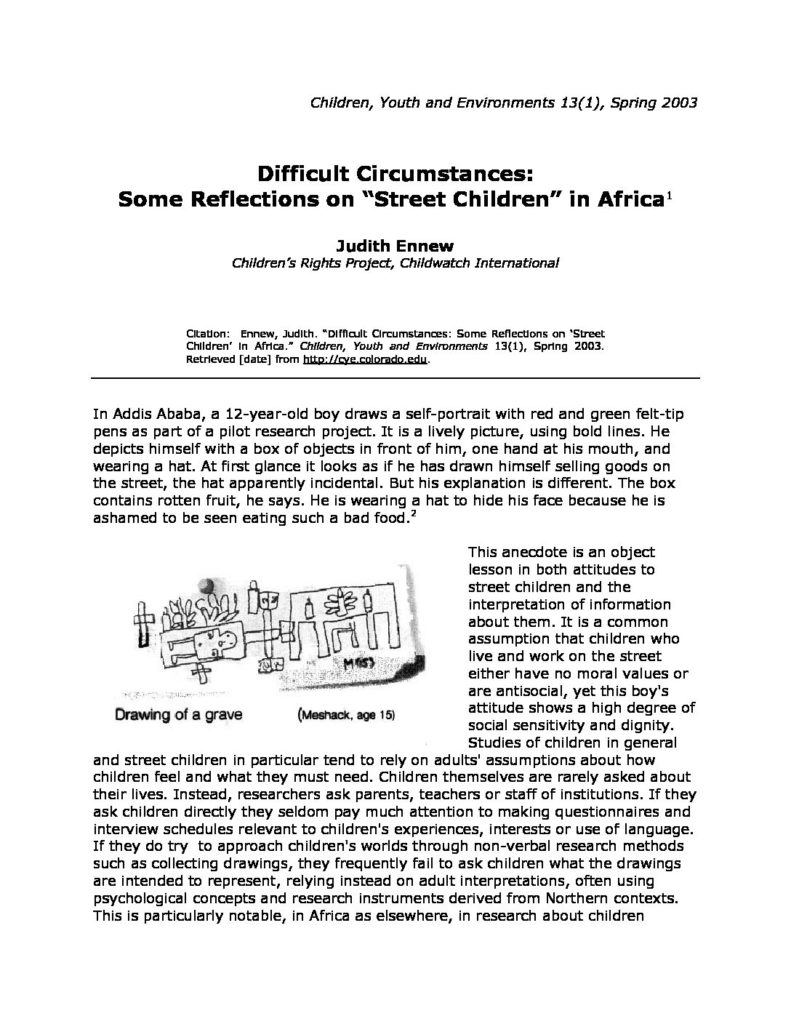
Difficult Circumstances: Some Reflections on Street Children in Africa
Summary
Studies of children in general and street children in particular tend to rely on adults’ assumptions about how children feel and what they must need. Children themselves are rarely asked about their lives. Instead, researchers ask parents, teachers or staff of institutions. If they ask children directly they seldom pay much attention to making questionnaires and interview schedules relevant to children’s experiences, interests or use of language. If they do try to approach children’s worlds through non-verbal research methods such as collecting drawings, they frequently fail to ask children what the drawings are intended to represent, relying instead on adult interpretations, often using psychological concepts and research instruments derived from Northern contexts. This paper considers the African and Latin American approaches to street children in research. The literature on street children in Africa at this point reveals no overall theoretical models or debates, which it has in common with all writing on street children. Yet, despite the fact that there has been no apparent effort to develop an alternative approach to the Latin American model of street children, there are glimmerings of an implicit African approach that would contextualize the lives of children who live and work in the street in other aspects of African childhoods.
Discussion
Users can discuss this report and make suggestions for future updates. You must be signed in to submit a comment.
No comments
Join the conversation and
Become a Member Existing member loginbecome a member.